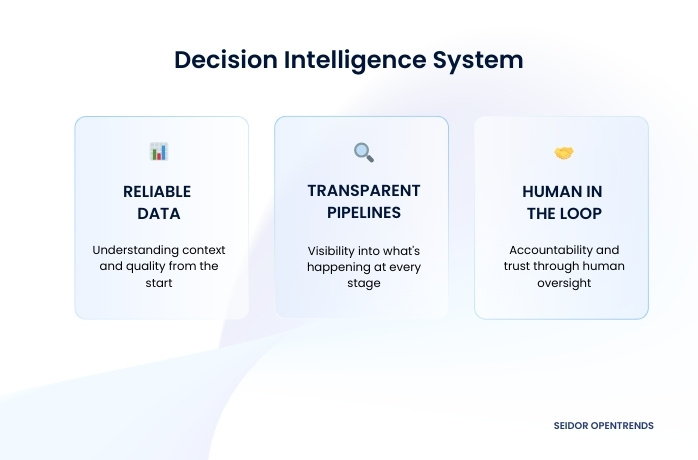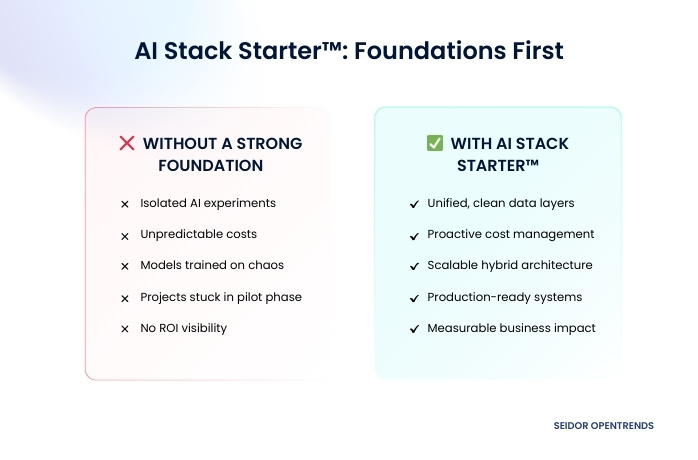
From Data Chaos to Decision Intelligence: Why AI Needs Better Foundations, Not Bigger Models
Everyone's talking about AI in 2025. However, what we're seeing is that most enterprise AI projects fail to progress beyond the pilot phase. And when they do, they rarely deliver the ROI leadership expects. The reason isn’t a lack of ambition or computing power for what companies are running systems for. It’s the hidden chaos underneath: inconsistent data, disconnected systems, and a fragmented view of truth.
At SEIDOR Opentrends, we see it daily. Enterprises rush to build predictive engines, chatbots, or copilots, only to discover their infrastructure can't support what they're trying to build. You can't train a model on chaos and expect intelligence. Bigger models don’t fix bad data.
Why AI Projects Keep Failing
Walk through any enterprise today and you'll find a graveyard of AI proof-of-concepts that never made it to production. Common failure points include:
- Data living in silos across departments, cloud platforms, and incompatible formats
- Legacy systems creating bottlenecks in analytics pipelines
- Nobody clearly owns (or governs) the training data
- A disconnect between what the business measures and what the AI actually optimizes for
What you end up with are isolated "AI islands" disconnected experiments that can't learn from each other or scale.
![]()
Decision Intelligence: The Missing Layer
Decision intelligence bridges the gap between what you know and what you do. It’s the discipline that connects data, analytics, and AI with real-world decisions. Then, feeds the outcomes back into the system.
Instead of obsessing over model accuracy scores, decision-intelligent systems focus on:
- Getting reliable data in and understanding the context around it
- Building transparent pipelines where you can see what's happening
- Keeping humans in the loop so there's accountability and trust

Foundations First: How We Build It
This is exactly why we created the AI Stack Starter™ at SEIDOR Opentrends. It's built for organizations ready to move from experimentation to something sustainable. Our approach combines:
- Data & Cloud Modernization – cleaning up and unifying the data mess
- AI Readiness Assessment – honestly evaluating where you are, what the risks are, and where ROI actually lives
- Rapid PoC Acceleration – building on hybrid cloud-AI architecture (Azure, AWS, GCP) that can grow with you

Take a recent project with a major European bank. They were burning budget on unpredictable mainframe costs and had no visibility into why. We helped them turn terabytes of system logs into a predictive MIPS forecasting engine using Google Vertex AI. Now, they manage costs proactively instead of reactively, and they optimize resources in real-time. Not just another dashboard gathering dust.

